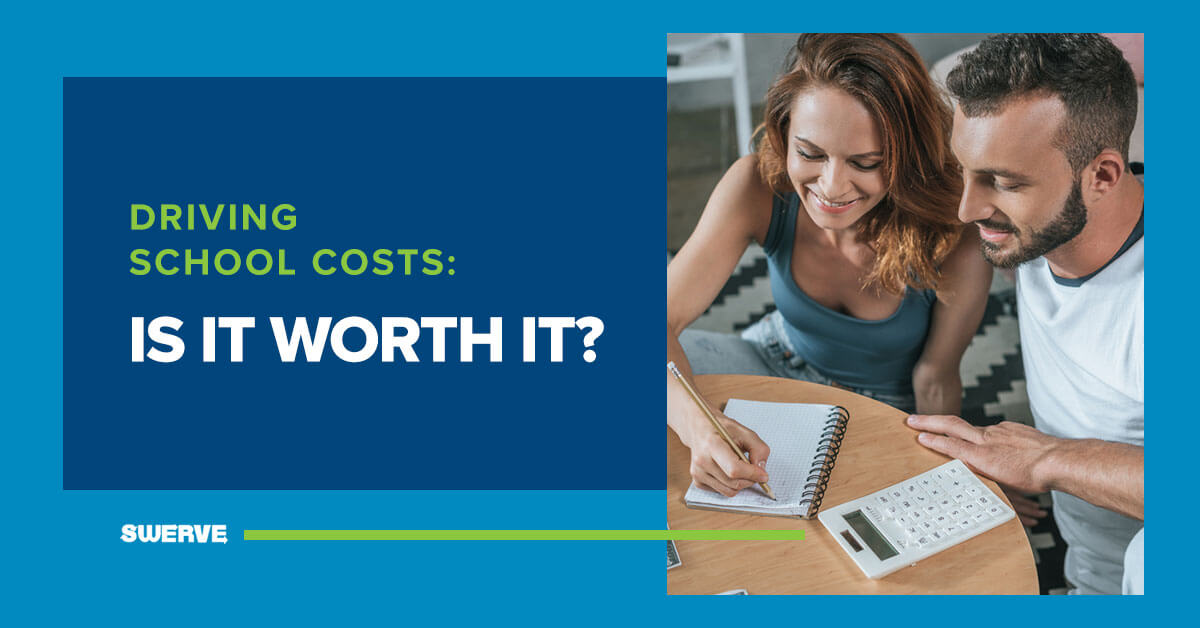 One of the reasons people are hesitant to sign up for the new driver training courses is because of the cost. Driving lessons cost more money than a parent or friend teaching a student to drive, but the extra cost is worth it. Learning to drive is an adventure, so why not start off on the right foot? Here is why driving school is worth the cost.
One of the reasons people are hesitant to sign up for the new driver training courses is because of the cost. Driving lessons cost more money than a parent or friend teaching a student to drive, but the extra cost is worth it. Learning to drive is an adventure, so why not start off on the right foot? Here is why driving school is worth the cost.
What is Included?
There are many elements involved in teaching a student how to drive. Classroom instruction, quizzes, and learning the laws is an important part of learning to drive, but it isn’t enough alone. When students pass through the driving school, the fees do help pay the instructor, but they also require:
- Practice driving a car
- Supplies for the class
- Road testing & knowledge testing (**This is not always included in the price and is offered in some states)
- Practice tests
These costs help ensure that each student receives a full, comprehensive education. Having a firm understanding of the laws and how to operate a car means better driving throughout life. This can save money down the line with fewer tickets for parking and traffic violations.
Driving school can also save money for parents and students every month. Many insurance companies will offer a discount for drivers who have enrolled in a driving school that covers defensive driving skills. This leads to insurance companies processing fewer claims allowing them to pass the savings down to you. Take into account that discounted savings each month, and it starts to add up fast.
Other Benefits of Paying for Driving School
There is more worth to an education than just paying a driving school. Driving hours are required to get a driver’s license once a permit is obtained.
These practice hours are done during daytime and nighttime hours for plenty of practice with a licensed driver in the passenger seat. This helps students feel more prepared once they get their license to drive without supervision and drive alone with confidence.
Driving for the required number of hours together can make or break a relationship. For parents and teenagers, trying to teach the teen how to drive can cause frustration for both parties. Having a neutral, third-party teacher in charge of teaching can ease the tension, putting parents in the role of cheerleaders. This helps parents and teens keep a more positive relationship during driving lessons.
Another benefit of having a driving instructor instead of a parent teaching a teen student to drive is that sometimes it is hard to listen to and take instruction from someone you are comfortable with. Teens are often less likely to listen to their parents’ advice or brush constructive criticism off as overbearing and controlling. Having a driving instructor as the teacher shows clear lines of authority and an expectation of respectful behavior.
For adult driving lessons, learning to drive through a driving school is ideal too. It can all be done quickly and without the help of a friend. Self-study for driving from a manual is difficult, knowing which areas to focus on and having practice questions to run through. Having someone to give helpful advice and instruction is beneficial for new adult drivers.
Experience Matters
Teaching a new driver how to operate a car safely and to really know the rules of the road is a big task. Driving instructors are better equipped to teach students because they have been trained on the best ways to teach and have experience doing it.
Rather than just trying to figure things out as they go, instructors are a helpful resource for driver’s education and the licensing process. They stay up to date on changes in laws too. Using a driving school to learn to drive really is the best way route to take.



